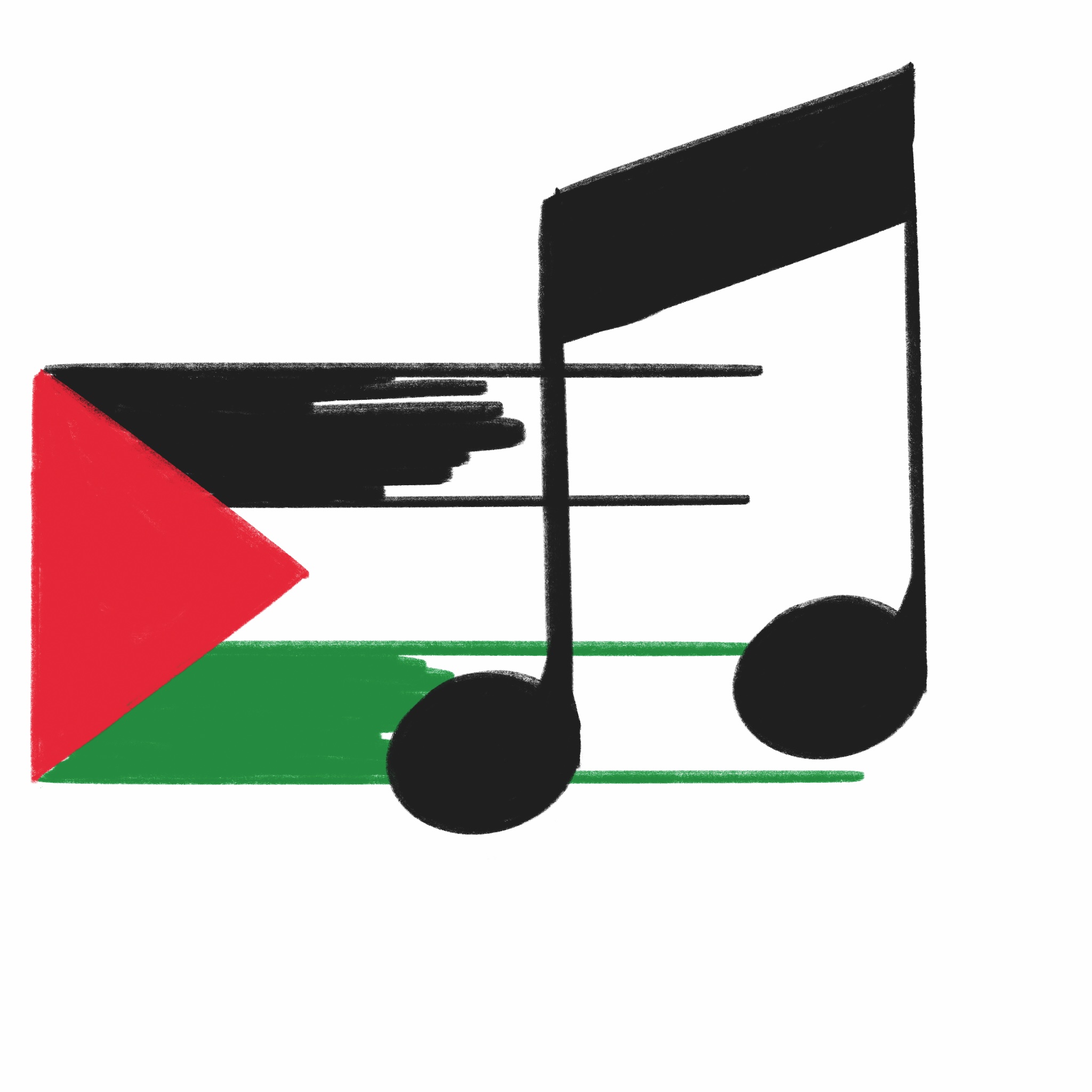Love is the revolution
February 14, 2025
For four tense, tiring and extremely exhilarating days, I, alongside many members of the Bowdoin student body, participated in and protested at the Shaban al-Dalou Union encampment. When initially brainstorming ideas to kick off this semester’s Music Response Project, I deliberated over various eclectic pieces of song I’ve been exploring as of late.
However, following the events of Thursday through Monday night, I believe that there is no material as pressing and relevant as the encampment and its garnering of campus attention and community. While countless elements of this experience can and will be discussed for what I hope will be a long time, I continuously find myself drawn to the establishment of solidarity through music.
I spoke with Eisa Rafat ’25, president of Bowdoin Student Government and a prominent member of Bowdoin Students for Justice in Palestine, to gauge his perspective on the presence of music at the encampment. Eisa spearheaded rallies each day to support those inside Smith Union. He leaned on all forms of auditory expression to stimulate emotional connection amongst protesters. Through chanting, singing, Boiler Room sets and live performances from our neighbors around Maine, rallies were sustained by the spirit of creativity.
One valuable source of this spirit for me is a YouTube video of Palestinian DJ Sama’ Abdulhadi. Well-known for a 2018 Boiler Room set, Abdulhadi’s mixing made a couple appearances both inside and outside the encampment.
The video depicts a large crowd gathered at an outside venue in Ramallah, dancing around Abdulhadi with smiles on their faces. Abdulhadi herself grins throughout her 58 minutes of intense techno, interacting with those around her and demonstrating pure happiness. Her website biography states that through DJing, Abdulhadi strives “to put Palestine on the musical map, and in doing so, she continues to garner international solidarity and broaden people’s ideas about Middle Eastern expression.”
During my conversation with Eisa, he examined the significance of “expression” as a movement in itself: “Art, poetry, music, clothing and jewelry are super essential to the storytelling of people. They are a deterrence to erasure.” He continued, touching on how “the Palestinian has represented itself … in music. The big reason why centering a lot of these things was so crucial was that it contextualized our protest.”
On Friday, I had the privilege of DJing at the encampment and noticed how uplifting and unifying music was for those around me. Eisa succinctly shared this observation as well, explaining that “it can be difficult to simultaneously experience joy and grief, but it is something that we try to learn from the attitudes of the Palestinian people. They find joy in the smallest of things, and that is their form of resistance to occupation.”
Whether pacing inside Smith Union, fearful of disciplinary outcomes from the administration or standing outside in the frigid air chanting, Bowdoin students exhibited outstanding efforts not only for Palestine but also for one another.
“Protesting is emotionally exhausting and oftentimes you usually give more than you take,” Eisa said. “But I saw the times in which we sang together as much more healing and recharging and re-energizing.”
He comments on something so beautiful here: the “oneness” of our students. I’ve heard and seen the word “solidarity” used incredibly often the past couple years, but I’ve never witnessed its manifestation as powerfully as I did in Shaban al-Dalou. To feel the cohesiveness of a group of people in its commitment to advocacy is an indescribable sensation that I’ve caught myself searching for since the end of the encampment. This gratifying sense of humanity, fueled by music, compassion and resolve, has been a guiding hand in SJP’s push for improved discourse at Bowdoin College.
I asked Eisa what his final thoughts were regarding the encampment, music and so on. He said, “We’ve consolidated this extremely passionate and intelligent group that is willing to show up. Now it’s about using that and continuing to build that momentum for greater goals, for bigger pushes, for more solidarity on the movement.”
I can think of no better objective than this. As students, simply aspiring to learn, we are in a consistent process of acquiring the academic tools to understand and interact with the world around us. But we are not just students: We are also people who know pain, exhaustion and, despite it all, perseverance. Eisa said it most eloquently: “Joy is resistance.” Love is resistance. We have the opportunity to love, and through our love, we extinguish violence, ignorance and erasure.


Comments
Before submitting a comment, please review our comment policy. Some key points from the policy: